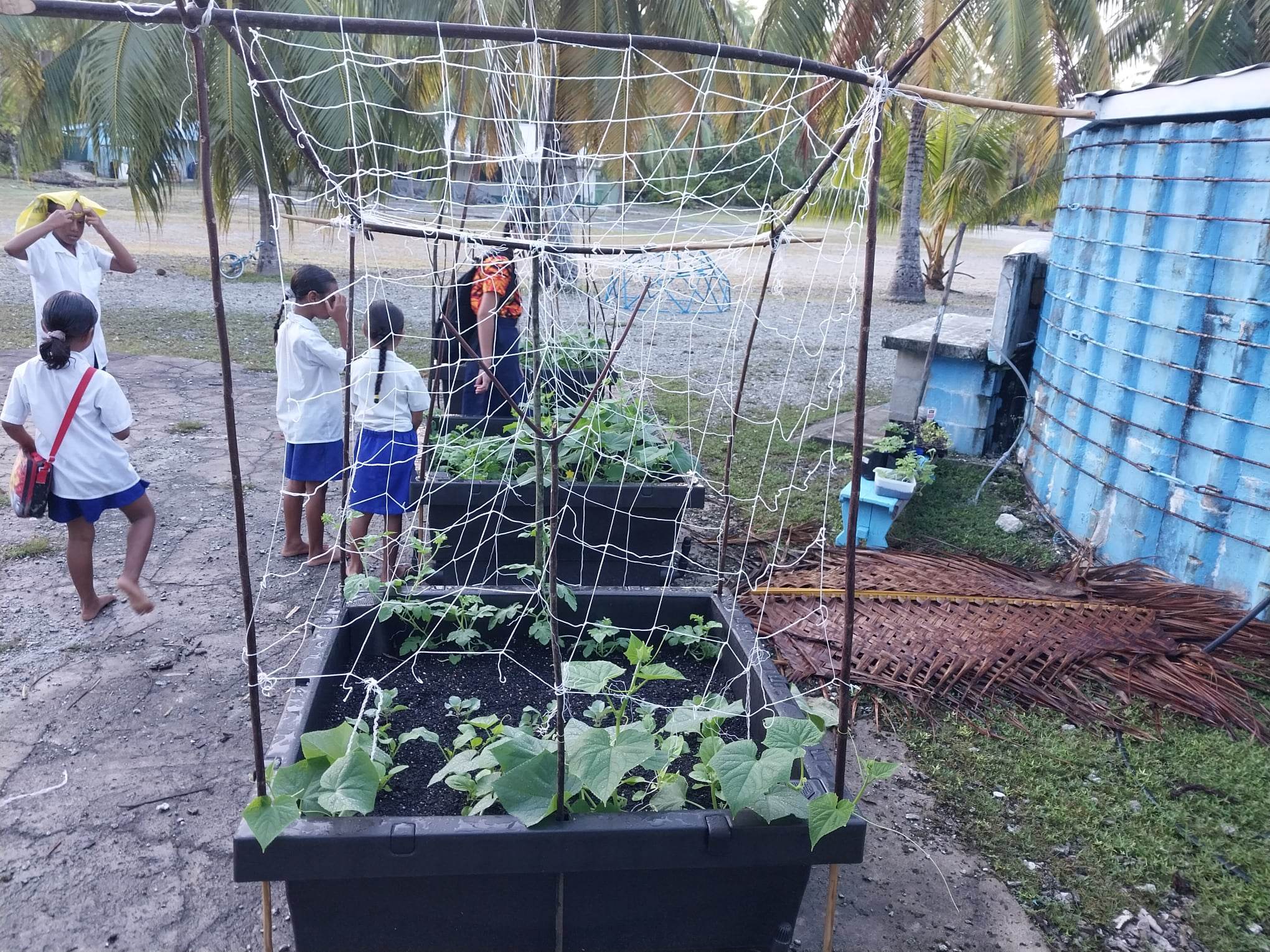School garden project teaches Rakahanga kids healthy eating
Saturday 24 June 2023 | Written by Losirene Lacanivalu | Published in Education, National

Rakahanga students utilise the food cubes to grow vegetables. SUPPLIED / 23062504
Rakahanga School students have embarked on a mission to grow their own vegetables in a bid to promote healthy living.
The initiative is made possible through the assistance of the Pacific Community (SPC) and the Cook Islands Ministry of Agriculture that secured food cubes for the school on the northern group island.
With a roll of 14 students, principal Maggie Purea-Taripo said this was a whole school initiative as each student wanted to be involved in the project.
“We had three food cubes sent from the Ministry of Agriculture and we distributed the three cubes into class levels – junior class, intermediates and also seniors. Each class is responsible for caring for their little garden.”

Rakahanga School kids show the seedlings ready for planting. SUPPLIED/ 23062502
Purea-Taripo is hoping that the residents of Rakahanga will consider following the school’s project to grow their own vegetables.
“It would be great if each household has a food cube so they can have their little garden and grow their own vegetables,” she said.

Rakahanga School students happily working on their garden project. SUPPLIED / 23062513
“Too long people have battled with food uncertainty and poor nutrition. These food cubes are self-contained garden beds with a reservoir at the bottom which allows moisture to distribute more evenly through the soil and the best part about it – you don’t need to water as regularly and it’s so easy to assemble.”
Secretary of Agriculture Temarana Anguna-Kamana said they were excited to receive a report from the principal of Rakahanga School that they were utilising the food cubes to grow vegetables.
Anguna-Kamana said when the principal visited Rarotonga, the ministry carried out a demonstration with her on how to assemble and use the food cubes.

Rakahanga students utilise the food cubes to grow vegetables. SUPPLIED / 23062504
The ministry then provided Rakahanga School with two cubes, potting mix and seeds.
She explained that the food cube was designed and produced by Biofilta, an Australian company developing a modular urban farming system.
According to Biofilta, the food cube system is “raised, so there is no risk of saltwater inundation, and our wicking technology is extremely water-efficient, using only a fraction of the water needed in conventional agriculture”.
Anguna-Kamana said: “These are important features, as the northern group do lack water.”
She added the ministry is always looking for ways to support farmers, and school students with new technology to boost agriculture.
“The goal is improved nutrition leading to healthier and productive lives for our people. By diversifying our production systems, we can provide the means and access to green vegetables and therefore improve our diets,” Anguna-Kamana said.
“If the school has surplus vegetables, these can be sold for income for the school. We are hopeful that the cubes provided to the other schools in the northern group are being utilised also,” she added.














































